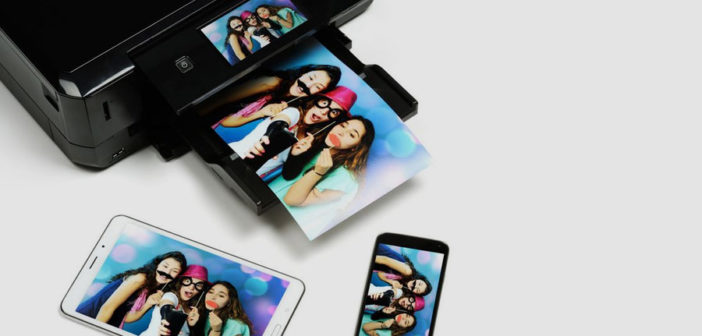Counterintuitive as it may sound, the more our lives are influenced by digital media, the more we are drawn to print as a retreat from the online space. This unexpected tendency is especially noticeable in a demographic you’d least expect to trend this way: millennials and their younger siblings (what’s being called Generation Z).
Statistically, Millennials consider print media as more trustworthy and authoritative and report a stronger emotional connection to messages delivered on paper. “Even though Millennials are the most digital-savvy generation, surprisingly more than half ignore digital advertising, and instead pay the greatest attention to direct mail and print advertising,” Quad Graphics, a global provider of print and marketing services, reports.
Part of this behavior comes from their having grown up in the digital space, where widespread access to information spawned new concerns about authority and safety when traversing the Web. Digital natives, those born after 1980 or so, also tend to see print as a respite from the online world—a place away from sterile and physically taxing screens, free from distractions.
For marketers, all this means that a proper reallocation of resources might be necessary to acknowledge and respond to offline consumer preferences.
How strong is the relationship between young people and print? Strong indeed, according to data from researchers at TRU, a division of TNS Research Global. Its 2011 survey of 600 young adultsage 16-26 touched on various corners of the print industry, from magazines to advertising and direct mail. It found an overwhelming preference among respondents for print in several categories, despite their fluency in social media and mobile messaging. People surveyed by TRU acknowledged digital as an easier and greener option, but still preferred getting news and information in print by large margins; they favored print over tablets for books (78%), magazines (71%) and newspapers (52%).
There’s also an emotional side to print that often escapes notice. TRU’s survey asked respondents about some common ways people show their love and gratitude to friends and family members. Looking at the results, you quickly notice that the more personal or monumental a moment is, the more respondents wanted it celebrated in print. TRU writes, “If forced to choose, the majority would rather receive: a birthday card in the mail than via email (87%), a mailed invitation than an eVite (57%), and a handwritten letter than an email (55%).”
Why is that? Data suggests some part of it is experiential. Millennials grew up with a novel form of “stranger danger” mentality unknown to previous generations. Cyber scams, Trojan Horse viruses, malware, hackers, and shady email links are online threats that have been around since the early days of the Web, looking to do harm physically, financially, or emotionally.
As a result, young people regard online recordkeeping as less official and less secure: 77% of TRU’s survey subjects said digital documents are less trustworthy since they “can be altered without your knowledge.” Not surprisingly, 90% prefer hard copies of important documents printed, just in case.
Deceit is also a part of the Web experience. Today, most websites include banner ads exalting incredible claims and clickable content designed to trigger the basest instincts to monetize advertising. Across all demographics, people avoid clicking on banner ads, with more than 54% of people saying they view them as untrustworthy, according to Banner Snack.
It’s almost foolish to underestimate print marketing especially when you see that ad-blocking grew 41% in 2015 alone. Clearly, ad blocking is becoming a revenue concern for popular online destinations, and some innovators with a loyal readership are now choosing print to support their endeavors.
Another reason Millennials are drawn to print is that it offers a much-needed break from sitting in front of your laptop all day. The volume of online content Millennials and teens consume daily exacts a physical toll over time. Apart from the taxing effect screen text has on the eyes, it also affects comprehension of the message. Research by Ohio State University finds that “students who read essays on a computer screen found the text harder to understand, less interesting and less persuasive than students who read the same essay on paper.”
While we’re on the subject of physicality, it’s important to note that people have a multisensory connection with paper that is unique to printed matter. People prefer the touch, look, and even smell of books, newspapers, and other print, which makes the paper you choose all the more important. It’s what tech writer and author of The Art of Immersion Frank Rose calls the “emotional void” of digital. If we’re talking direct mail, having an object in your physical space makes your message harder to ignore too, of course.
Print marketing done right can be an inexpensive way to connect with younger consumers. A well-planned print campaign can run cheaper than PPC and can be tracked just as easily and efficiently like online ads. Unlike digital ads, printed media physically exists, which means your recipient can hold on to it for future consideration. In this sense, a printed ad serves as a lasting reminder of your brand long after first touch, unlike digital ads, which consumers can exit from and forget about in seconds.
The popularity of print with younger generations means print will play an important role in the years to come. Print is far from dead. In fact, it may even breathe new life to your branding and help your company make that connection with Millennials.
This article first appeared in www.marketingprofs.com
Seeking to build and grow your brand using the force of consumer insight, strategic foresight, creative disruption and technology prowess? Talk to us at +9714 3867728 or mail: info@groupisd.com or visit www.groupisd.com




